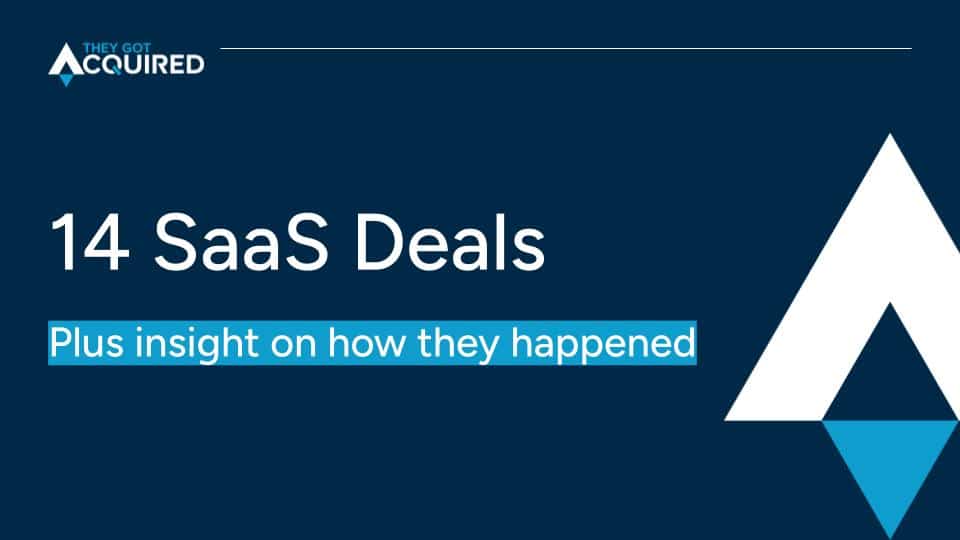Every ending brings an opportunity for something new.
For Adam White, being fired from a search engine optimization (SEO) gig was the catalyst to start — and later sell — an SEO business of his own.
In 2015, White was doing SEO for Marcus Lemonis, the host of CNBC’s “The Profit.” Although he worked to improve the rankings of Lemonis’ businesses, he struggled to move the needle and was eventually cut, he told us.
While it was an unfortunate exit, the situation motivated White to improve his understanding and execution of successful SEO strategies. In 2017, White founded SEOJet, a software service that helps businesses track their SEO performance and grow backlinks.
“I looked at all of the backlinks that pointed to #1-ranked pages in hundreds of websites in every industry and categorized the anchor text of every single link,” White said. “When I compared all of the #1-ranked pages to each other, I noticed significant patterns in each backlink profile, and so I built SEOJet to help people follow these patterns as they link build.”
After four years, White had grown SEOJet to $360,000 in annual revenue. He then sold the company to an undisclosed buyer for a price in the low-7 figures.
How SEOJet’s Adam White overcame growth hurdles
SEOJet generated revenue in two ways. First, the company offered a subscription-based backlinking service that helped businesses publish their content on blogs and other high-authority websites.
Backlinks — or inbound links — are links from one website to a page on another website. Backlinks are valuable in SEO because search engines like Google view them as an endorsement, which helps improve a site’s search rankings.
SEOJet’s second revenue stream was a content syndication service for SEO agencies. The service allowed agencies to submit their clients’ content to a network of more than 300 websites, acquiring backlinks, earning social media shares and improving the client sites’ SEO rankings.
After the first couple of years running SEOJet, White learned about the risks of automation via a costly mistake. Initially, access to the service was by invitation only. White set up automated emails, so 20 minutes after a potential customer requested an invite, they’d receive a message saying they’d been approved. But because he was so busy running and growing the business, White didn’t realize for six months that those automated emails were going straight to spam.
“I just assumed no one liked my software anymore,” White said. “During those six months, 6,000 people requested an invite to sign up for SEOJet and none of them ever saw a reply from us. When I figured this out, first I cried inside, then I was happy to know that the reason the business wasn’t growing was because of a dumb glitch.”
But that “dumb glitch” cost White an estimated $250,000. The mistake compelled him to hire a part-time developer and another contractor to support his efforts.
Ironically, as an SEO company in a crowded market, SEOJet struggled to stand out in search results.
“I knew I had to get SEOJet to rank well in Google in order to give my software credibility, but this takes a ton of time and effort,” he said. “To accomplish this, I would be competing against the best SEOs in the world who had a huge head start on me.”
To improve his ranking and attract customers, White used another small tool he had built, GuestPostTracker.com, which at the time was a large list of blogs that accepted guest posts. He used it to build backlinks and to bring in new customers via what he described as a “tripwire offer,” which introduced GuestPostTracker clients to SEOJet.
Over time, though, SEOJet’s growth plateaued. White’s typical marketing channels had dried up and new customer acquisition slowed, prompting him to change his approach. He reached out to a colleague in the SaaS space and paid him for some instruction in Facebook Ads strategies.
After implementing the colleague’s recommendations, White doubled SEOJet’s annual revenue in about six months to about $360,000, he said. By then, SEOJet had nearly 200 SEO agencies as clients.
Focusing for 6 more months helped him double his sale price
SEOJet’s resurgent growth came with opportune timing. White was looking to sell the business, and its upward trajectory helped him obtain more attractive offers.
“I see many founders who sell their business because it isn’t growing. That is the worst time to sell,” he said. “If you can hustle and turn things around, then sell when things are moving in a positive direction, you will make so much more money. For me it only took six months to go from a $500,000 offer to low 7 figures.”
In 2021, White accepted a low-7-figure deal from an undisclosed buyer who had previously purchased one of his other businesses. The sales process was smooth, thanks in part to their existing relationship and White’s experience selling other online businesses.
Since 2009, White has sold more than 15 online businesses, he said. He has also purchased businesses, including another backlink SaaS called JustReachOut.
“I don’t know if it’s my ADHD, but once I have built a business and it is running and profitable, I tend to lose interest,” White explained. “SaaS businesses are a little better because I can always be making improvements to the software and that keeps me engaged, but I am thinking about selling a business the minute I start creating it.”
White now operates SquidVision, a service that helps websites that take transactions increase conversions by showing them how much revenue is generated by each button and link on a page.



